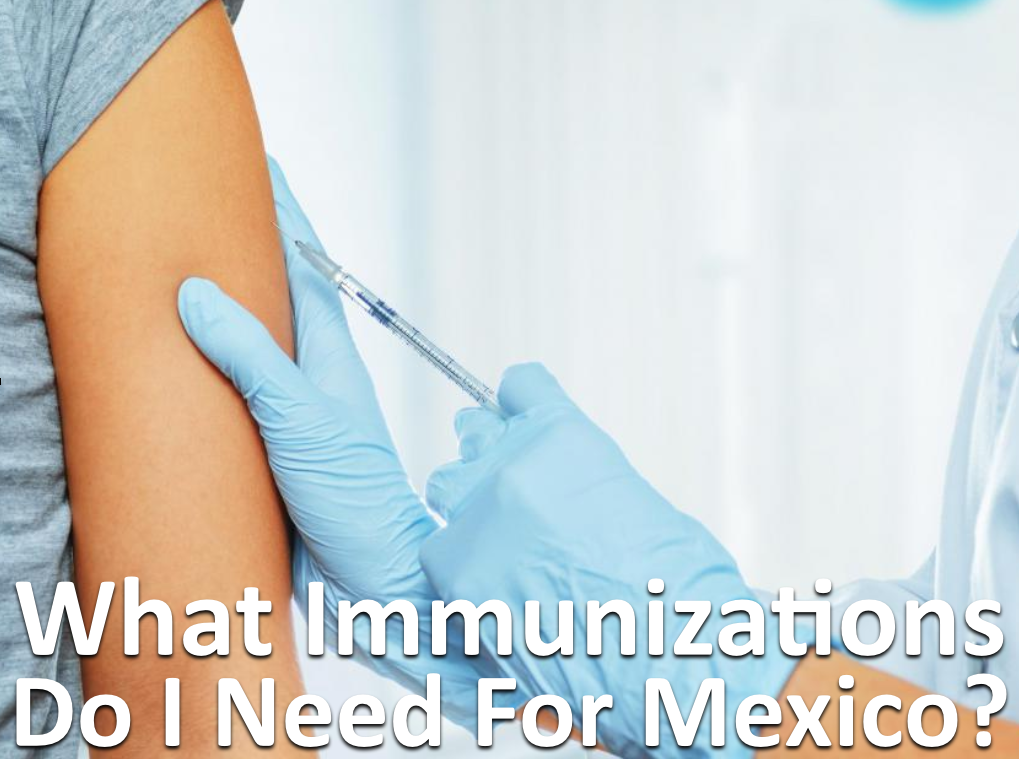“Don’t drink the water”
“My cousin’s roommate’s sister’s former landlord went to Mexico and he didn’t get sick”
“Never eat salad”
There are many rules of thumb we’ve heard about traveling in Mexico. In addition to anecdotal health advice, you should contact a medical professional to make educated decisions about your health. Below is a list of guidelines and information, but of course, you should review with your doctor before making any decisions.
Below is a list of prevention measures and vaccinations to jump start your health planning.
Vaccinations
Routine Vaccinations – Make sure you are up-to-date on routine vaccines before your trip. These vaccines include measles-mumps-rubella (MMR) vaccine, diphtheria-tetanus-pertussis vaccine, varicella (chickenpox) vaccine, polio vaccine, and your yearly flu shot.
Hepatitis A – Hepatitis A is a liver disease spread by contaminated food and water. It can also be spread from the hands of a person with hepatitis A. It is rarely spread through sexual contact. The vaccine consists of 2 shots, 6 months apart.
Hepatitis B – Hepatitis B is a contagious virus that is transmitted through blood, blood products, and other body fluids (such as semen). Travelers can become infected through unprotected sex with an infected person, injection drug use, and transfusions with unscreened blood. The vaccine consists of 3 shots, in about a 6 month span.
Typhoid – Typhoid fever is a serious disease spread by contaminated food and water. Symptoms of typhoid include lasting high fevers, weakness, stomach pains, headache, and loss of appetite. Some patients have constipation, and some have a rash. Internal bleeding and death can occur but are rare. The vaccine can be pills or a shot.
Yellow Fever – Yellow fever is a disease caused by a virus that is spread through mosquito bites. Symptoms take 3–6 days to develop and include fever, chills, headache, backache, and muscle aches. About 15% of people who get yellow fever develop serious illness that can lead to bleeding, shock, organ failure, and sometimes death. A yellow fever vaccination is not required for Mexico but is required for a few other Latin American countries. If you’ve recently travelled to a Yellow Fever area, you may be required to provide proof of vaccination before entering Mexico.
Preventions
Malaria – You can contract malaria by mosquito bites. You may need to take prescription medicine before, during, and after your trip to prevent malaria, depending on your travel plans, such as where you are going and when you are traveling. While there are no medication resistant strains in Mexico, there are in other areas of Central and South America so you’ll need to plan accordingly with your doctor to make sure you get the correct anti-malarial medication. There is no complete vaccination for Malaria.
Rabies – Rabies is a deadly disease caused by a virus that is spread in the saliva of infected animals. All mammals can get rabies. People usually get rabies from licks, bites, or scratches from infected dogs and other animals such as bats, foxes, raccoons, and mongooses. We know how much dogs loves to chase motorcycles. There are a series of 3 shots in a 3 or 4 week period. Even with these pre-exposure shots, if you suspect you may have obtained malaria, you may need additional shots. There is no complete vaccination for Rabies.
Dengue Fever – Dengue is caused by any one of four related viruses transmitted by mosquitoes. There are not yet any vaccines to prevent infection with dengue virus and the most effective protective measures are those that avoid mosquito bites.
Diarrhea – Known by many foreigners as Montezuma’s Revenge, poor hygiene practice in local restaurants is likely the largest contributor to the risk for travelers diarrhea. Talk to your doctor about Ciproflaxin pills if it doesn’t go away in a few days.
Where To Go For More Information
Your primary care physician should be your first resource. However, many of these doctors don’t know the specific details regarding international travel which is why you should consider discussing your travel plans with a doctor at a travel clinic.
Here is a link to find a travel clinic in your area.
Center for Disease Control (CDC)
Public Health Agency of Canada
The information presented in this article is a guideline. You should always consult a medical professional before making any medical decisions.
